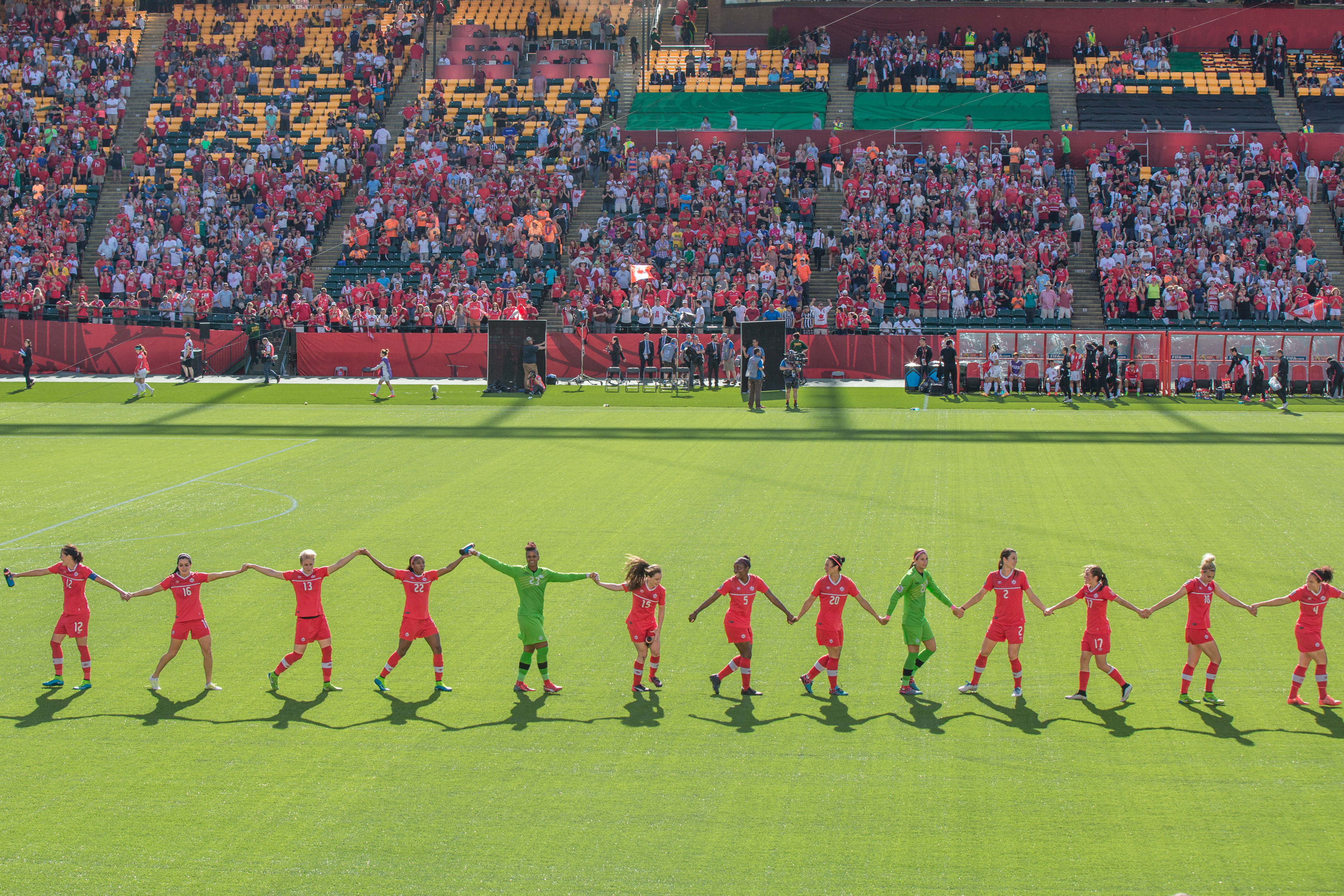The United States Women’s National Team (USWNT) defeated Brazil 2-1 on Wednesday, Feb. 22 to handily win the SheBelieves Cup for the fourth time in a row, justifying their spot on top of FIFA’s rankings.
We learned a lot from the SheBelieves Cup–American forward Mallory Swanson solidified her spot as a starter, the United States showed they can still dominate in a stacked field despite their disappointing bronze medal finish at the Olympics in 2021, Japan proved that they’re a force to be reckoned with after a second-place finish, and Brazil demonstrated why they’re the No. 9 team in the world as the only squad to score on the United States.
Canada, on the other hand, fell a bit flat, winning only one match: a 2-0 victory over the eventual third-place finishers, Brazil. Considering that FIFA currently ranks them at No. 6 internationally, this was quite a disappointing performance, but it’s not hard to see why they struggled.
Because the biggest thing we learned didn’t come during the Cup. It came six days before, on Feb. 10, when the Canadian Soccer Players’ Association (CSPA) posted a letter to Twitter exposing Canada Soccer for significantly cutting the WNT’s funding relative to the MNT’s funding for 2023, just six months before the World Cup is set to begin.
The team nearly withdrew from the SheBelieves Cup, going on strike for two days until Canada Soccer threatened financially costly legal action.
The letter highlighted the recent success of both the men’s and women’s national teams and the associated rise in popularity of soccer in Canada, and pointed out that “more corporate dollars” have been put into the sport as a result. The players thus raised the question, “where is the funding?”
After they won the most recent summer Olympics in 2021, it’s unclear why Canada Soccer wouldn’t want to maximize the WNT’s chances of staying at the top by providing them with adequate funding. According to the letter, the team has had to “cut not only training camp days but full camp windows, cut the number of players and staff invited into camps, significantly limit the already limited youth teams’ activities, all while [the players] continue to face immense uncertainty about compensation.”
The men’s national team players also released a letter in support of the women’s team, adding that “Canada Soccer’s principal revenue streams have been in large part diverted to Canada Soccer Business to the benefit of the owners of for-profit minor league professional teams,” but that much of the organization’s other funding and allocating remains a mystery.
Canada Soccer responded by meeting with members of the women’s national team on Feb. 11 and subsequently releasing a press statement, which stated, among other things:
“Canada Soccer has committed to negotiating a comprehensive collective agreement with both of the player associations of the Women’s and Men’s National Teams. That agreement, once concluded, will be a historic deal that will deliver real change and pay equity in Canada Soccer. It is a goal worth getting right.”
This is one thing that Canada Soccer is correct about.
How is the team that upset the United States–which has unarguably been the most dominant team in women’s soccer for the past decade–in the semifinal of the last Olympics (which they would go on to win) supposed to replicate that level of success without the same resources?
How are they supposed to even come close to that level of success when they have less funding than the men’s team, which lost every single game in the group stage of the World Cup a couple of months ago? In what was only their second ever World Cup appearance (the first being in 1986)?
It’s also important to note that although CONCACAF is a much weaker conference on the men’s side than on the women’s side, the Canadian women’s team qualifies for the World Cup more frequently than the men do.
The fact that this is still an issue in 2023 is unthinkable. The USWNT made headlines last year when they signed a historic collective bargaining agreement with U.S. Soccer that established identical economic terms between the men’s and women’s national players. This success, unlike the Americans’ SheBelieves Cup championship, should be an easy feat for the Canadians to replicate.
Canada Soccer must remediate the inequities between their two national teams as soon as possible. The organization cannot expect a world-class level of play from a team that is underfunded, and therefore underappreciated, despite their claims otherwise.
It’s not difficult to understand why Canada struggled to perform at their usual level. It’s hard to believe in yourself when your employer doesn’t.






